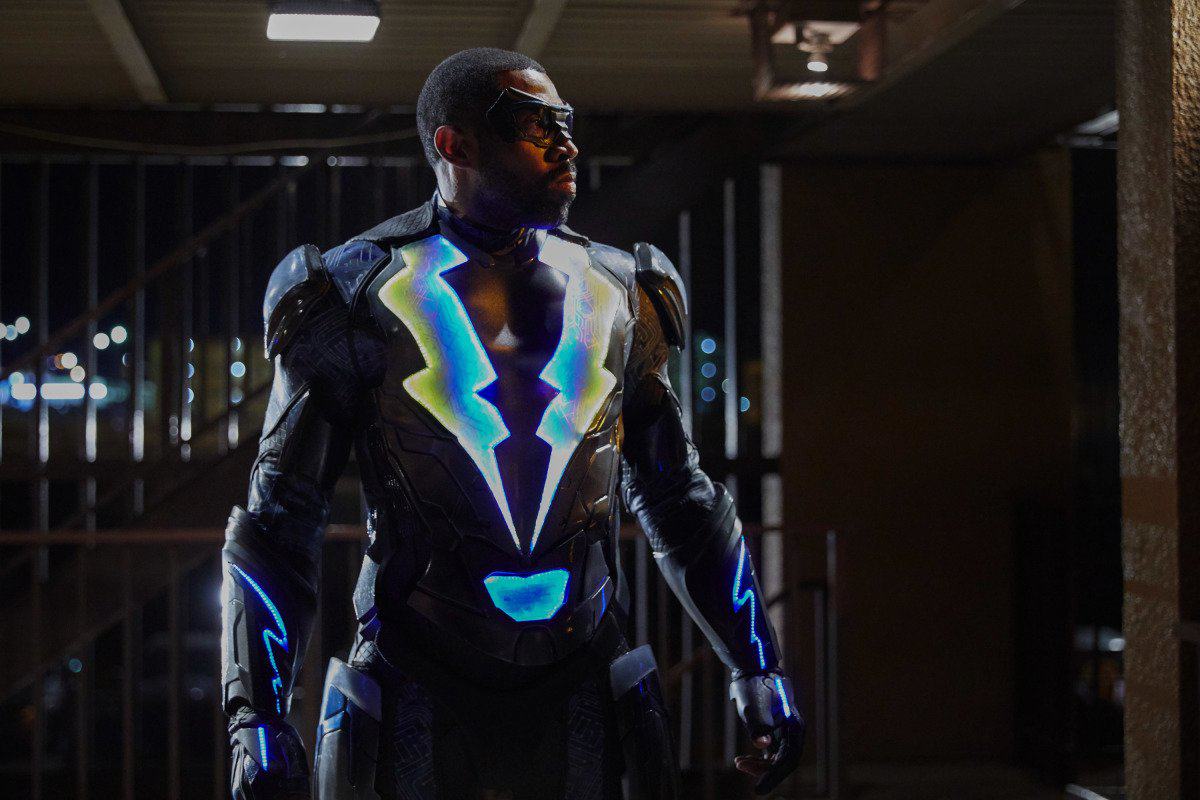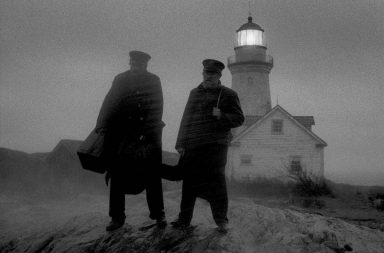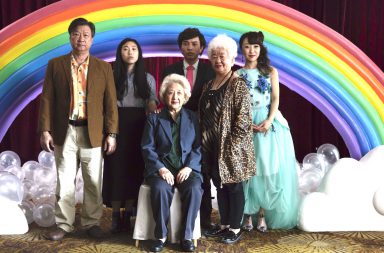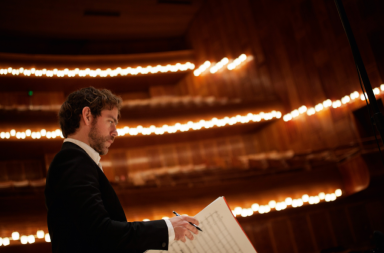Throughout his long career, Kurt Farquhar has become one of the most prolific TV composers and a towering figure in scoring African-American TV series, from the early, unforgettable success of sitcoms that helped define what television in the 90s was about – Sister, Sister, Cousin Skeeter, South Central, Moesha – to recent, intimate dramas – The Game, Being Mary Jane. The Chicago-born composer, the youngest of five children – his brother Ralph is a TV writer and producer and worked on some of the above-mentioned shows – composed his first symphonic work at the age of twelve. Since then, the six-time BMI Award winning composer never stopped writing and experiencing in music, taking deserved pride in bringing urban sounds and a lot his own soulful voice to traditional scoring.
Black Lightning is unlike most superhero stories. Jefferson Pierce is not a billionaire, he is not an alien, he is just an average, middle-aged Black man with a family. The character allows the series to deal with a whole range of social issues such as racism and homosexuality, and to be incredibly accurate when it comes to how young people feel, react or experience things these days. In addition to Black Lightning, Kurt Farquhar currently works on new episodes of Being Mary Jane, The Quad and In Contempt, all airing on BET.
Can you tell me a bit about how you got involved with Black Lightning? This isn’t the first time you’ve worked with Salim and Mara Akil, is it?
No, that’s right. The first show that I’ve worked on with the Akils was a show called Girlfriends, that was quite a few years ago. Then, we’ve done The Game and Being Mary Jane. But you know, when you see the music that I did on those shows, it wasn’t necessarily the watchable thing, “Hey, let’s have Kurt to do Black Lightning.” It was definitely a leap of faith from their part. I got the chance to do a show called Stitchers, and I think that was a step in this direction.
What are the challenges of composing music for a superhero series that is part of a very massive universe? You’ve been doing music for TV for a long time, but this is the first time you are approaching the superhero genre.
Yes, this is my first superhero series! It’s interesting because it’s part of a long line of DC superhero shows, a lot of which have been done on The CW and a wonderful composer, Blake Neely, has been doing those. But for Black Lightning, Salim and I always wanted to approach it differently and look at it from a different point of view. I mean musically, there’s a lot of retro-style songs that are used, many more songs than in other superhero TV shows. The bigger challenge, rather than trying to fit in with the other superhero shows, was to fit in with this musical concept that is happening. Kier Lehman, our music supervisor, along with Salim, is choosing all those songs that make you feel like that’s a part of the universe; even though it’s so different, it all makes sense together.
Did you work in any way with Kier and Salim in choosing the songs?
Salim, who is the showrunner, chose most of the songs, but there’s a lot more to the concept. There’s a lot of questions as to whether we would play something with a song or whether we would do it with the score, or even whether we would melt the two in some way. I do this concept of making a scene like I’m coming out of the songs; a lot of times, you can’t tell when the song ends and when I begin, and vice versa. So that’s a lot of work Kier and I go into. There’s also an enormous amount of sound effects in that show, and to make it all work is really an amazing challenge. And we have to make it work so that it doesn’t feel too distinctive: it’s got to be edgy, it’s got to be different, and at the same time, it has some current feels. For example, I’m using a lot of elements of trap music but I’m not trying to turn it into a hip-hop score – it’s clearly to get all the soaring superhero majesty, and to really keep up action. And at the same time, it feels at home with these songs; even though it’s a lot of different music, it doesn’t feel like it’s chilling all over the place, it feels like it’s one world.
That’s right! Today, most of the TV series or films that have a Black hero feel the need to feature hip-hop music as a distinguishing mark. In your score, I love how you use the whole range of African-American music, and blend those genres into a form of writing which has all the elements of music for film.
First of all, thank you for noticing that! It isn’t just, “Okay, there’s a Black face on the screen, let’s just put this hip-hop beat and, oh! I think they’re matching up together.” In this case, I actually do both. I’m very comfortable at doing orchestral scores as I am doing hip-hop: I’m also responsible for bringing most of that urban sound into television throughout my career. And right now… People listen to a lot of stuff, you know! When you’re in a Black neighbourhood, it’s not just hip-hop going on! What’s great about this show is that it’s open to all kinds of sounds that really make up the Black community and the Black experience. Just like anybody else, you’re being pulled in many, many different directions, and I wanted you to be able to hear that in terms of the score. What I was doing was that I was going in and out with elements of hip-hop and action music and orchestral stuff, and sometimes, small things, leading in… It’s sort of insidious how it’s getting in your head, how it’s sneaking in and how it makes you feel it in a different way. Actually, I just wrapped doing the last cue of the last episode of this season, last night, and I was taking a listen to the music before this interview and I said, “Oh my God! (laughs) That’s some pretty crazy stuff!” To be honest with you, look what’s happening today! People sing so much music online, you can hear people from all over the world, how can you be not influenced by that? Just listen to the biggest pop hits… If you listen to Kendrick Lamar, you’re not just hearing his neighbourhood, you’re hearing influences from all over and how he’s flipping it in his music. And that’s what I’m trying to do.
Were there any tough choices you had to make in order to make Black Lightning sound different from other superhero TV series?
Well, you know, I love the show, the pictures to guide me and what the producers are asking for. The show is different, you just look at it, right out the gate. The acting, the dialogue… There’s a character, one of the bad guys, named Lala. I said, “Oh my God!” I grew up in Chicago, I know this character! (laughs) Now, the only thing was to not immediately hit somebody like that with, “Yeah, now I gotta do a hip-hop beat because he’s there,” but rather: “what could I do that makes you feel the inner workings of his head?” That’s more important than making it glitter with his physical presence.
Black Lightning is unlike most superhero stories. He doesn’t fight villains, what he fights is social injustice, and the opening scene is very clear about this. The character is very complex, and through him, the whole series is very complex. How did you deal with this complexity when you were writing the score and how did you approach these themes as a composer?
Well… The racism component was actually very easy to connect to for me. I mean, I’ve had my own experiences of it. And I think that if you look at how the writers are taking the story, you’re not going to think, “Well, that is right, and that is wrong,” because they actually let you see things from a lot of different sides. So, musically, I’m really taking that key, trying to leave it open and leave the audience make their own decisions of how they are feeling. And, you know, Black Lightning… There’s a darker element to him too! I think there’s definitely something interesting in how they walk this line; the complicated thing, musically, is to walk that line with them, with the story, and not to make a judgement where they have not and before them, if they do.
What I feel about the main character is that he’s half Martin Luther King when he’s Jefferson, half Malcolm X when he’s Black Lightning. It’s his own two-sided way to help the community. And the music reflects that, with soft, emotional cues on one hand, and an overwhelming, muscular score on the other hand.
Thank you! Well, you’re getting exactly what I was trying to do! Even on the softer things, there should be always a little darkness to it. Jefferson’s main theme is heartfelt in a way, but it’s also tortured. He doesn’t know if he wants to do this – and actually, he doesn’t, because he is pulled in. And at the same time, when he is Black Lightning, I used the same word that you said there, when I was talking to my team, I said, “This thing has got to be really muscular! It’s got to be intense, this guy ain’t gonna have two seconds of doubt about it. When he’s got the suit on, it’s over. He’s gonna light you up!” (laughs) I really wanted to feel the muscular thing, but he’s a really complicated character. There’s that war inside his head, and I’ve been struggling to make that apparent and play that every step of the way through the season.
How do you feel about Black Lightning going on air now, with all the current social and political context that we experience every day?
Not only is it the right time, but it’s the best time! And to be there, to be a part of this discussion, I will be honest with you, it’s what we live for as artists. If we can do something to bring some light or another point of view about this time, well, that’s a good thing! This is actually dialogue. So, you get to display. I’ve never thought that a TV show can change the world, but if it can make somebody think while being entertained at the same time, then wow, that’s great, I love the thought of it. I completely love the opportunity to be a part of it, and I’m very much looking forward to what the writers have in mind for the next season.
I think we are in the middle of something right now, and Black Lightning, along with the success of other films and TV shows such as Get Out or Atlanta, can make people think about a lot of issues. I think that is very important.
Absolutely! There’s another show I work on on BET called The Quad, which The New York Times voted as one of their top shows of 2017, in which they’re talking about topical, important things, showing another take on the situation. These shows are taking an opportunity to show what they’re feeling from their point of view, all the amazing shows that you just mentioned, and to be working at this time, and to be part of this dialogue, is something that just makes you feel like, “Okay, I’m just really glad to be here, I’m proud to be part of this.”
Interview prepared, conducted and transcribed by Valentin Maniglia
Edited by Marine Wong Kwok Chuen



